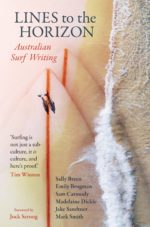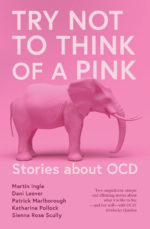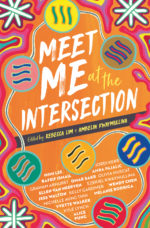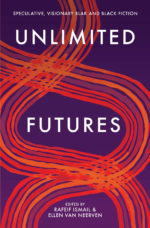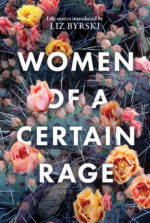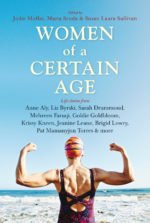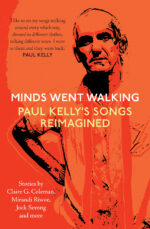Is there an elephant in the room? Publisher Georgia Richter shares a behind-the-scenes glimpse into the editorial office and Fremantle Press anthologies
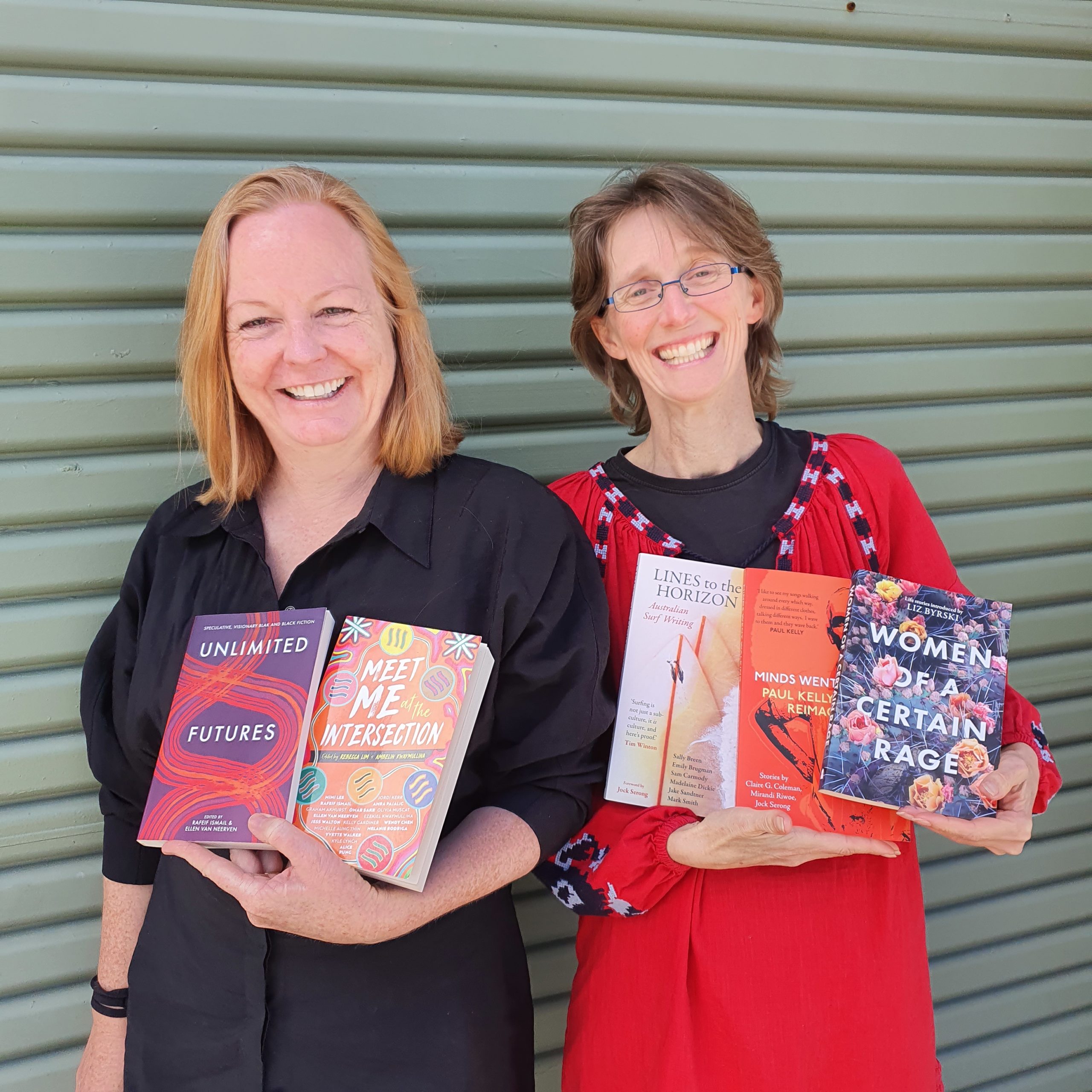
On leaving home
When I left Melbourne at the age of twenty-one, I left behind the squelching autumn leaves that fell from the big European trees along the Yarra. I left behind bracing clifftop walks on Phillip Island with my two best partners-in-writing, and the salami we placed where the phone handset should be. I left behind the Lambrusco I drank with them – the only drinking I ever did successfully.
I left behind the person I first fully gave my heart to, the one who pulled me to my feet to dance in The Bullring on Johnson Street, Fitzroy. Love may have been in the air that night, but over time, whatever we had changed into a friendship that has endured because the affection was always real even if the combination of him and me was impossible.
If there was a soundtrack to that time of departure, it surely included Paul Kelly singing the words ‘I remember’ while, perched on its tower, the Nylex clock read eleven degrees, and I marched down wind-blasted concrete streets, past long beads of car lights, hurrying home in the darkness and the rain.
At the age of twenty-one, I was moving away from Melbourne in leaps and bounds, saying goodbye to my family and knowing they were the reason I had to go, so that I could properly become an adult in a vast, sunny place where I knew nobody at all.
On playlists and anthologies
Songs have a way of threading themselves into your life – a line from a lyric recalls a dripping rotunda in a park; the agonising apprehension of jealousy; a car ride along the ocean road with the music loud; the smell of soap on clean skin.
Like songs on an album, certain stories rise up from anthologies as if they belong only to you. The very best short stories have a way of affirming something, or illuminating it in a way you had never thought of before.
Last year, a manuscript came my way – a collection of short stories called Minds Went Walking – offered to Fremantle Press by Mark Smith, Jock Serong and Neil A. White. They had invited writers from around Australia to create a story responding to a Paul Kelly song of their choice. I was onboard right away, being one of those people who carries the lyrics of one of Australia’s finest songwriting poets inside my head.
When editing short stories, there is little latitude or longitude. It is a matter of discerning the meaning of a story if it’s not quite clear, and then drawing it out or paring it back. Sometimes the important final line has been tucked away four paragraphs before the end. Sometimes there is one narrative thread too many. With a short story, the author is mostly very nearly there; the editor simply needs to ask what is missing or what could go.
What a pleasure it was to meet different members of the Kelly Gang via their stories. Just for instance, Alice Bishop’s ‘Soft Bite’ is perfection – beautiful and unbearable – the kind of story that should be taught to students of the form. And Robbie Arnott’s description of the death of his grandfather in ‘Every Fucking City’ hits me every time I return to it, in the same way I might poke a cavity for the sharp thrill of the exposed nerve.
Where our anthologies are going
In the last few years at Fremantle Press, we have begun to think about anthologies differently. We know that you cannot be what you cannot see: Jessica Walton says all children and teenagers need to be able to find themselves on bookshelves. Children’s Publisher Cate Sutherland has a gift for gathering voices in places where there has been mostly silence. A 2018 anthology, Meet Me at the Intersection, invited stories from authors who are First Nations, People of Colour, LGBTIQA+, or living with disability. The eponymous intersection proved to be a dynamic and vibrant place for writers to assemble, and for readers with their own experiences of intersectionality to find themselves there.
Sometimes stories are on their way to becoming something else. Meet Me at the Intersection included a story called ‘Stars in Our Eyes’ by Jessica Walton. Cate Sutherland invited visual storyteller Aśka to work with Jessica on her short story about a non-binary romance at a Comic-Con. The resulting graphic novel was Stars in Their Eyes, the same story in another form. It will soon be published in the USA and has already won several awards.
Last year, Fremantle Press teamed up with Djed Press to produce Unlimited Futures, an anthology of speculative fiction from emerging and established First Nations and Black writers. Their stories boldly ask ‘what if?’, and invite readers to follow. Unlimited Futures was a publishing model that involved working with a community – Rafeif Ismail and Ellen van Neerven curated, compiled and edited; Fremantle Press joined in with the final-stage editing and publishing expertise, and the marketing amplification that comes from design, promotion and distribution.
Next, Cate is working with Seth Malacari and Get YA Words Out on an anthology from the LGBTIQA+ community, which will be published with Fremantle Press in 2023. We see this as an anthology model full of possibilities: a way of making space for the voices of different communities in an industry that is still nowhere near as diverse as the readers it seeks to reach.
Meanwhile on the adult list …
In 2020, I received a long-form essay from Gold Coast writer Jake Sandtner about Yallingup-boy turned pro-surfer, Taj Burrow. At 15,000 words, his essay was a difficult length until it found its place in a six-author anthology of narrative non-fiction called Lines to the Horizon. The only proviso for contributors was that their piece had to contain writing about surfing – a way of life and culture that shapes an element of the psyche of so many Australian coastal dwellers.
The 2021 anthology Women of a Certain Rage riffed on its predecessor Women of a Certain Age and played out stories of women’s anger in all its active and reactive forms. ‘We know you will have stories about #MeToo,’ curator Liz Byrski and I told them, ‘but we would also be interested to hear about other times there has been big anger in your life.’ And we did: anger at the treatment of asylum seekers, the legacy of a rageful father, a tiny pill that upended a life … The most unexpected thing for contributors was how difficult it was to write about anger, to reinhabit and define that most inarticulate of emotions. The collection crackles with the deep tension of naming the inexpressible.
The elephant in the room
This year’s Try Not to Think of a Pink Elephant began when Sienna Rose Scully submitted a long-form essay to us, sharing what she wished she had known earlier about living with obsessive compulsive disorder (OCD).
In the last few years, OCD has entered my orbit via the diagnoses of a number of young people I am close to. It is the nature of this disorder that the sufferer often endures years of turmoil and shame before they come to give what they have a name. My encounters with OCD may have felt intense and distressing to me, but that was nothing compared to that experienced by the young people I knew, who had been in private battle with that boggart-bully for years.
Maybe a collection of writing is a flimsy thing to hold up against something as large as OCD. Or maybe this is another possible role of an anthology: beyond entertainment or enlightenment, a collection of stories can create spaces for many different kinds of readers and, with that, a kind of comfort.
When I invited four authors to join Sienna Rose Scully in telling their stories about living with OCD, I chose people who also wrote beautifully and whose perspectives were shaped by their neurodivergence. Therapist and OCD specialist Kimberley Quinlan wrote an introduction to the work and provided feedback to each writer on possible sensitivity issues.
I like to think that readers beginning that journey of battling the boggart themselves can have access to the hard-won insights words of people who have been there before them. I believe that sometimes it can help to be told by people who know: It won’t always be like this.
As broad and deep as an anthology
I left home at twenty-one not knowing how over time my sense of self and community and context would expand, and how the songs I listened to and the stories I read would help give shape to these realisations.
One thing I know now that I did not know then is that there can be no starker difference between what a child feels as they leave home and what a parent feels.
I have learned that it takes just seconds for the face of a friend, unseen for twenty years, to move at warp speed, so that there you both are again, older, maybe wiser, and ready to start anew.
Anthologies and songs are like dear friends in that way: in the best of them we find something hitherto undiscovered, along with some precious thing we have always known.



